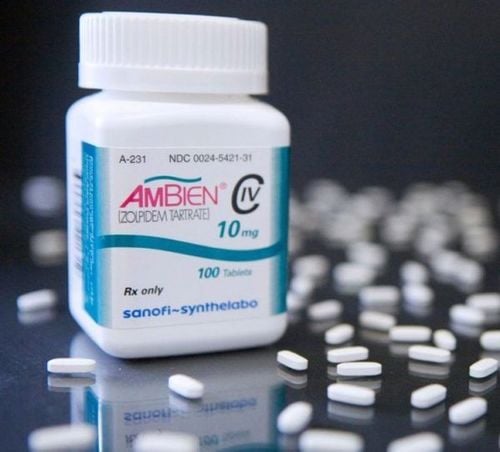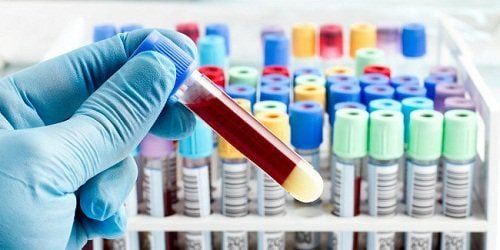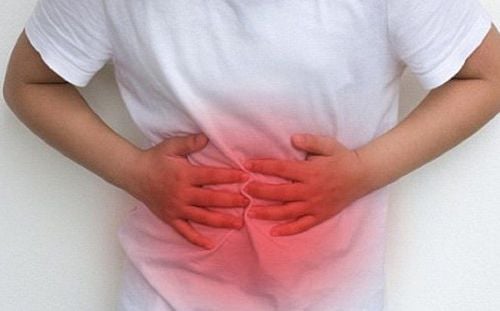This is an automatically translated article.
After your cancer treatment, you can return to your daily life. In addition to staying healthy during the recovery period, you need to take some measures to take care of your body after cancer treatment to promote long-term health and enjoy life ahead.Health recommendations for people who have overcome cancer are no different from those of the general population, such as exercising, eating right, maintaining a healthy weight, sleeping Get enough sleep, reduce stress, stay away from tobacco and smoke, and reduce alcohol consumption.
However, these simple measures also provide some additional benefits for cancer survivors by improving quality of life as well as making the transition from a cancer patient to a healthy person. strong becomes smoother.
Therefore, to change the body after cancer treatment, the patient needs:
1. Sports practice
Regular exercise will increase your enjoyment of life after cancer treatment and speed up the recovery process.People who have overcome cancer who regularly practice sports can feel:
Increased strength and endurance. Signs and symptoms of depression go into remission. Reduce anxiety. Reduce fatigue. Improve mood. Increase confidence. Alleviate pain. Improve sleep. Reduce the risk of cancer recurrence. Having a sports exercise regime in your daily life will not take you too much effort. Focusing on small steps will make you more flexible in life. You should often use the stairs as well as park your car far from your destination and walk the rest of the way. Talk to your doctor before you start any exercise.
With your doctor's approval, start exercising slowly and slowly speed up the progress. The American Cancer Society recommends that adults who have survived cancer spend at least 150 minutes a week in sports, while strength training should be done at least. 2 days per week. You will probably feel that exercising will help boost your spirits like never before.
It's not a big deal if you feel bored with your workouts every now and then. Don't blame yourself for not reaching your goal because it may be the fatigue that the late effects cause that is holding you back. When you feel you can continue your workout, try jogging around the block. Don't over-exercise your body and remember that rest is also important in the recovery process after cancer treatment.
Exercise has many benefits, some studies have shown that being physically active will help reduce the risk of cancer recurrence and mortality from this disease. Many people who have overcome cancer are concerned about the disease coming back and want to do everything to prevent it.
While the evidence on the ability to reduce cancer mortality is still preliminary, evidence of the benefits that exercise has on the cardiovascular, pulmonary and other systems of the body is extremely certain. Therefore, one of the ways to take care of the body after cancer treatment is to exercise.

Tập luyện thể thao đều đặn là phương pháp chăm sóc cơ thể sau điều trị ung thư
2. Having a balanced diet is the way to take care of the body after cancer treatment
Having a diet rich in fruits and vegetables as well as whole grains is medically recommended. When it comes to food choices, the American Cancer Society encourages people who have survived cancer to do the following:Eat plenty of fruits and vegetables every day. Consume healthy fats in fish and walnuts such as omega-3s, etc. Choose proteins that are low in saturated fat such as fish, lean meats, eggs, beans, nuts and seeds. they beans for the meal. Eat foods that are rich in healthy sources of carbohydrates like whole grains, legumes, fruits and vegetables. The combination of the above foods will provide you with an adequate amount of vitamins and essential nutrients that contribute to a healthy body.
The medical community has not yet determined whether owning a nutrient-rich diet makes it difficult for cancer to return. In-depth studies of diets low in fat or containing specific fruits and vegetables have produced elusive results. All in all, having a varied diet with lots of fruits and vegetables will still bring a lot of health benefits.
It is very dangerous to add too many vitamins and minerals to the diet. Some cancer survivors believe that consuming more vitamins is better for health. This is a misconception, consuming the same nutrients too much will harm the body.
If you are concerned about taking all the vitamins you need, check with your doctor to see if taking a daily multivitamin is right for you.
3. Maintain a healthy weight
Your weight may increase or decrease during cancer treatment. Trying to maintain a healthy weight is the way to take care of your body after cancer treatment. Consult your doctor to get information about your ideal weight and the best way to achieve it.For those who have overcome cancer and are aiming to gain weight, make meals eye-catching, easy to eat. Talk to your dietitian to outline a safe process for weight gain.
Work with your doctor to understand how to manage nausea, pain or other side effects of cancer treatment that may be preventing your body from absorbing essential nutrients .
For the group of people who need to lose weight, please take weight loss measures slowly, should not lose more than 1 kg per week. Control your calorie intake and balance it with exercise. It sounds daunting if you're looking to lose a lot of weight quickly, but try to do it slowly and stick to your weight loss progress.

Duy trì mức cân nặng hợp lý cùng là một phương pháp chăm sóc cơ thể sau điều trị ung thư
4. Proper rest
Sleep problems are even more common in people with cancer and even those who have survived the disease. It may be due to physical changes, side effects of therapy, stress, or other factors.Getting enough sleep is an essential part of the healing process after cancer treatment. This helps relieve fatigue and recharge your mind and body, helping you to function optimally when you wake up. Sufficient and sound sleep promotes cognitive performance, improves hormone function, and lowers blood pressure.
To get a good night's sleep, do the following:
Avoid consuming foods or beverages containing caffeine at least 8 hours before bed. Sleeping time . Avoid eye contact with computer screens or televisions 1 to 2 hours before bedtime. Avoid exercising 2 to 3 hours before bed. Keep the bedroom quiet and remove all light. If you find yourself feeling drowsy throughout the day, talk to your doctor. Maybe you have a sleep disorder or a problem caused by a side effect of cancer treatment.
5. Stress relief
You may feel that physical, psychological, and social influences are taking a toll on your mind. While there's still no evidence that managing stress helps prevent or treat cancer, developing effective strategies for dealing with stress can help improve your quality of life, such as reducing depression, anxiety, and depression. anxiety and symptoms related to cancer and its treatment.Some effective stress management strategies include:
Relaxation or meditation techniques such as mindfulness training. Psychological consultation. Support groups for people with cancer. Medicines for depression or anxiety. Sports practice. Regularly chat and interact with family and friends.
6. Stop using tobacco
Stop this bad habit now. Smoking or using tobacco increases the risk of many types of cancer. Stopping this product right away will help reduce the risk of the cancer coming back and the risk of developing another type of cancer.If you've tried quitting smoking in the past but the results have not been satisfactory, seek help. Talk to your doctor to get the most helpful advice.
Use alcohol in moderation or even not at all.
If you choose to use alcohol, consume it in moderation. For healthy adults, this amounts to 1 can of alcohol per day for women of all ages and men over 65. Men aged 65 and under should consume 2 cans per day.
Alcohol can be beneficial for some people. In these people, consuming as much as 1 can of alcoholic beverage per day may help reduce the risk of heart disease. But it also increases their risk of certain cancers, such as oral cavity and oropharyngeal cancers.
Although the medical community is still unclear as to whether alcohol consumption makes cancer more likely to come back, evidence of the possibility of an increased risk of another type of cancer is very clear.
Think carefully about the risks and benefits of alcohol consumption and talk to your doctor.

Phương pháp chăm sóc cơ thể sau điều trị ung thư là bỏ hút thuốc lá
7. Do what you can
While you may be concerned about how doing these things will completely change your daily life, do what you can and take this change slowly. Gradually making strides with a healthy diet or exercise regimen will make it easier for you to adapt and make permanent lifestyle changes for the rest of your life8. Regular check-ups
After your cancer treatment is complete, you will receive a follow-up cancer treatment plan from your doctor, which will be kept in your medical record.All cancer survivors must receive follow-up care, with regular checkups after treatment has been completed.
These checkups may include blood tests as well as other tests and procedures to look for changes in your health or any problems that may occur as a result of cancer treatment. These visits are also a time to check for physical and emotional problems that may occur months or years after treatment ends.
The follow-up care plan, along with a summary of your cancer treatment, is part of your post-cancer body care plan. This plan will have all the details you and your doctor discuss to make sure you get regular care after treatment ends.
Currently, early cancer screening is considered the perfect measure in the timely detection and treatment of all types of cancer. Reduce the cost of treatment and especially reduce the mortality rate in patients. Vinmec International General Hospital always deploys and introduces to customers the Early Cancer Screening Package at Vinmec - Peace of mind to live well to help with gene testing, imaging, testing of biomarkers to detect tumors you early.
Choosing the Early Cancer Screening Package at Vinmec - Peace of mind at Vinmec, customers will get:
Only one gene test can assess the risk of 16 common cancers in both men and women ( lung cancer , colorectal cancer , breast cancer , pancreatic cancer , cervical cancer , stomach cancer , prostate cancer ,.....) Early detection of early signs of cancer cancer through imaging, endoscopy, and ultrasound. The operation is simple, careful and accurate. A team of well-trained specialists, especially in oncology, are capable of handling cancer cases. With a system of facilities, advanced and modern medical equipment and a team of doctors with deep expertise and experience, it will help the examination and treatment process of patients at Vinmec become faster with High efficiency, save cost and time.
Please dial HOTLINE for more information or register for an appointment HERE. Download MyVinmec app to make appointments faster and to manage your bookings easily.
References: cancer.gov, mayoclinic.org












